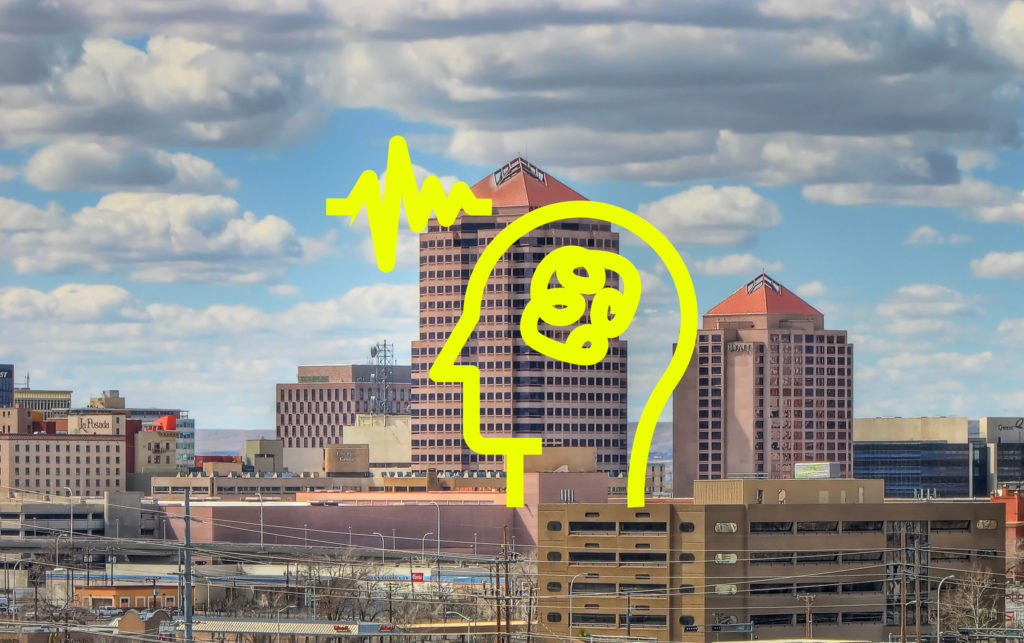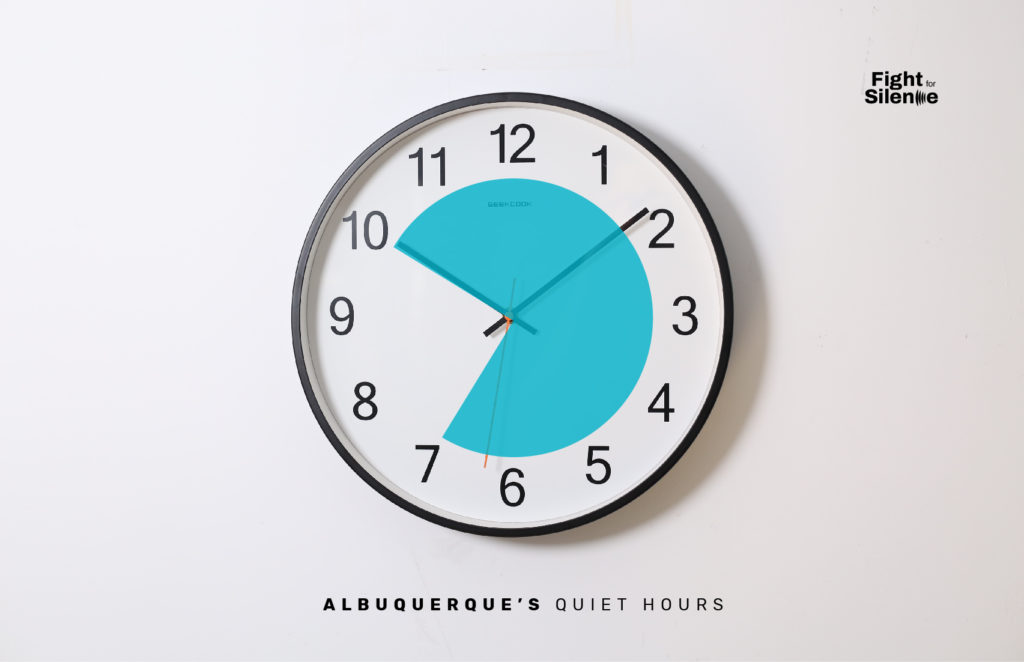
How to file a noise complaint in Albuquerque
Albuquerque is the largest city in New Mexico. It is home to different cultures and also a hub for technology and media companies.
With its continuously growing population, and popularity, Albuquerque can sometimes get a bit noisy. Most noise complaints in Albuquerque are traffic related, followed by neighborhood noises.
The good news is Albuquerque has a decent noise ordinance aiming to protect its citizens from this relatively known form of pollution and source of stress and discomfort. So if you live in Albuquerque and would like to file a noise complaint, stay with us while we go through the basics of the city’s noise ordinance and how to go about filing a complaint depending on the source of the noise you are facing.
Albuquerque’s noise ordinance
Albuquerque’s City Council passed the Noise Control Ordinance with the sole intent of minimizing the exposure of its residents to the physiological and psychological dangers of excessive noise, and to protect, promote and preserve the public health, safety, and welfare of its habitants.
The City Council aimed to produce an ordinance that allows its citizens to enjoy their property, work in silence, and sleep in peace. They wanted to provide a stress-free environment away from all the unnecessary sounds.
The ordinance established different sound limits according to different zones inside the city, and appoints the Environmental Health Department as the organism responsible for enforcing the ordinance. The Environmental Health Department can, of course, seek help from other city agencies, such as the police, in their effort to regulate noise.
Quiet Hours in Albuquerque
All noise in the city of Albuquerque must be kept to a minimum and under the maximum allowed during quiet hours, which are:
- Day-time: 7:00 AM to 10:00 PM: 55 dBa
- Night-time: 10:00 PM to 7:00 AM: 50 dBa

However, the noise limits can be temporarily adjusted by acquiring exemptions with the permission of the mayor of the city.
How is noise measured under the Albuquerque Noise Control Ordinance?
Noise is measured using a sound level meter with A-weighing Network. The meter catches sound noises from any point of the property receiving the sounds.
How to file a noise complaint in Albuquerque?
The quickest way to report excessive is to call the Albuquerque Police Department’s non-emergency number. That is 311 during working hours, or (505) 242-COPS (2677) after working hours.
The Albuquerque Police Department provides the following list on their website, which people willing to file a noise complaint must be ready to answer/provide.
- description of the noise.
- your contact information.
- the location of the source of your complaint.
- time, date, and duration of the complaint; and
- any additional information that will assist the Environmental Health Department or the Albuquerque Police Department in addressing the issue.
The police will then open a case and notify the Environmental Health Department so that they can take proper noise measurements and according actions. If the noise is happening at that exact moment, and the Police Department has units available, they might also send a patrol to the scene in order to warn the offender and solve the situation peacefully.
Sometimes though, it is not feasible to take the sound measurements at the exact time of a noise complaint, which is why the Health Department is allowed to evaluate the noise during normal business hours. This can be problematic, as many noise complaints happen outside of normal business hours. That’s why we recommend that you take your own noise measurements and record them. They might not be legally binding, but they can definitely help the person assigned to your case at the Environmental Health Department, or the police officer responding to your call, get a better understanding of the objective noise levels which you are complaining about and take your case more seriously. There are multiple free apps that will allow you to measure sound levels with your phone.
We also recommend that you file a noise complaint every time the noise happens, as each violation shall constitute a separate and distinct offense. So if your neighbor is partying every weekend, file a noise complaint every weekend.
What happens after you file a complaint?
After the Environmental Health Department has taken the necessary noise measurements and verified that the noise code is indeed being violated, they will issue a notification to the Mayor’s office.
When a notification of violation is received, the Mayor’s office sends a notice of violation to the alleged offender.
The notice shall contain the following information:
- The address where the violation occurred;
- The approximate time the violation occurred;
- A brief narrative of the circumstances surrounding the violation;
- A statement regarding whether this is the first, second, third or subsequent offense within a consecutive 36-month period;
- A name and phone number or title of a municipal employee from whom the owner can obtain further information;
- The address where payment for the violation may be made;
- A statement that the owner has the right to contest the validity of the civil violation by requesting a hearing in writing within ten days of the date of mailing of the Notice of Violation; and
- A copy of the Noise Control Ordinance.
If an individual produces a sound level (noise) louder than the noise ordinance allows, he or she can be issued a citation by the police or the staff from the Environmental Health Department.
Any offender who wishes to request a hearing by a City Hearing Officer can pay a hearing fee of $50 and demand it. The hearing officer may either refund the hearing fee if there is no violation or impose a fine if there is an offense. The fine for violating the provisions of the Noise Ordinance is about $250 for a first-time offense.
Valid reasons to file a noise complaint in Albuquerque
Filing a noise complaint against a noisy neighbor?
Noisy neighbors are one of the most common sources of noise discomfort in the US, and Albuquerque is no exception.
Albuquerque is the biggest city in New Mexico, with a growing population of over half a million people. Revving cars and bikes, House-parties and get-togethers hosted in the community cause increased noise levels.
There are no time restrictions on any social gatherings, Hence, the general sound levels must be maintained at all hours. The day-time noise levels can be as loud as a normal conversation (55 dB) and at night-time, the noise must be maintained to whispering levels (50 dB). The noise level also cannot exceed the ambient noise level by more than 10 decibels.
If you are renting and a neighbor is being noisy, you can raise a complaint with the building manager/landlord first. They’re bound to have some influence since they have eviction rights against the tenants.
If the warnings from the landlord do not work, then they can avail the legal remedy of civil action for public nuisance against such tenants. If the landlord is unable to provide a solution to your problem against the noisy neighbor, you maybe terminate the lease and even sue for damages.
Noise from construction sites?
The City’s Noise Ordinance recognizes that Albuquerque has a growing population as compared to the rest of the cities in the state of New Mexico Hence, excessive construction is inevitable. However, the code has certain guidelines that construction workers are supposed to follow to prevent noise disturbances, as it recognizes the need to provide a healthy standard of living.
There are restrictions on any construction work to be done on Sundays, holidays, and between 10:00 PM to 4:00 AM, unless there is a Temporary Construction Permit.
No Construction work is allowed within 500 feet of any noise-sensitive property (that includes schools, hospitals and churches) unless there are sound control devices installed in the construction equipment and proper routine noise determination tests are done every ten minutes. The noise determination tests are to be done by checking the noise levels on the receiving property.
The sound levels cannot exceed 80 dB during any day for more than 3 days (whether consecutive or non-consecutive).
If you think your business will suffer due to noise generated by a construction site, you might be able to get some compensation from the city, but that will require you to pay a $50 fee first in order to get a hearing with the mayor’s office to present your case. The decision of the hearing officer is final and can only be challenged by a writ in the State District Court.
Noise from barking dogs, animals?
Noise from home pets are treated slightly differently, as they also involve the well-being of the animal.
This type of complaint is usually handled quicker and might require getting some animal protection organization involved.
Once the readings have been collected to prove there’s an actual violation of the noise code, the offender will receive a 7-day notice to fix the problem. If the problem isn’t fixed, an officer will then be assigned to the case and will start making a log of the violations. The officer will also explain options for criminal prosecution and mediation with the offender.
Noise from Cars, Automobiles?
Like most American cities, Albuquerque relies heavily on motor vehicles, which inevitably become an important source of noise pollution. And this isn’t just because of the vehicles running, but also from horns, back-up beepers, alarms, etc.
Actually, if the alarm system of a vehicle goes off for longer than 5 consecutive minutes twice in a 7-day period, the owner of the said vehicle shall be liable to penalties under the ordinance.
Noise cameras in Albuquerque
A pilot program was recently introduced by Councilman Benton, Jones and Bassan that installed noise cameras throughout the city.
The Mayor’s office along with the Environmental Health Department launched this to address the increase of modified car exhausts and aggressive driving. Very much like speed radars, noise cameras are equipped with a sound level measuring device that will trigger the camera to take a photo when the measurement exceeds a certain level. Since the plate number of the vehicle is also captured, that initiates an automated process in which the offender receives a violation notice automatically and is given 90 days to fix the problem.
What happens if nothing works?
Sometimes, repeat offenders are not curtailed with simple measures. As a consequence, there are laws in Albuquerque that allow the Mayor to seek a restraining order or an injunction by a court of competent jurisdiction.
If a person continues to make a noise, the court might punish the person with up to 6 months of jail time, as well as a fine.
Conclusion
Albuquerque is a relatively large, and most importantly, growing city. As such, it is unreasonable to expect that one can live there in pure silence. Albuquerque’s noise ordinance was not designed to reduce the overall background noise, but to adapt to the rapidly developing rate of the city.
Because of this period of growth that the city is living, the authorities have also committed to revising their noise ordinance every 5 years, in order to adapt it to the continuously evolving reality of the city.
This, together with the introduction of some “advanced” solutions such as traffic noise cameras, show a real commitment from the city to try and control the noise which residents are exposed to on a daily basis, and puts Albuquerque ahead of many other US cities in terms of noise pollution regulation.
